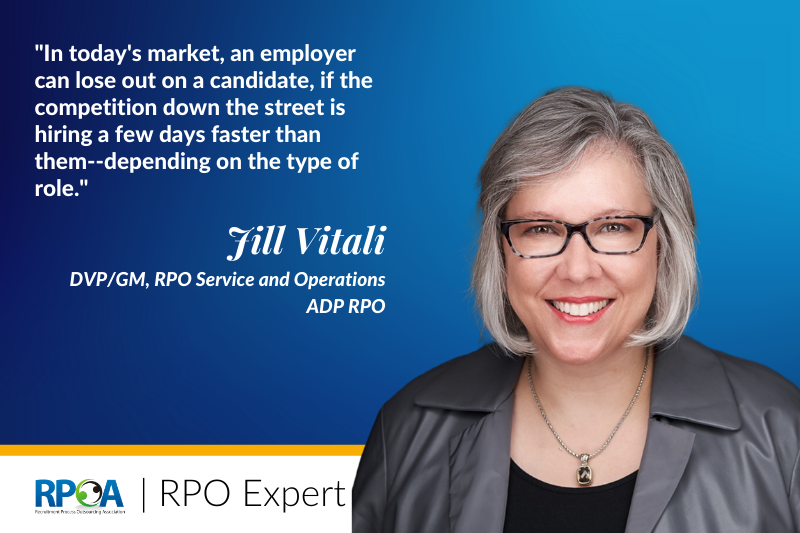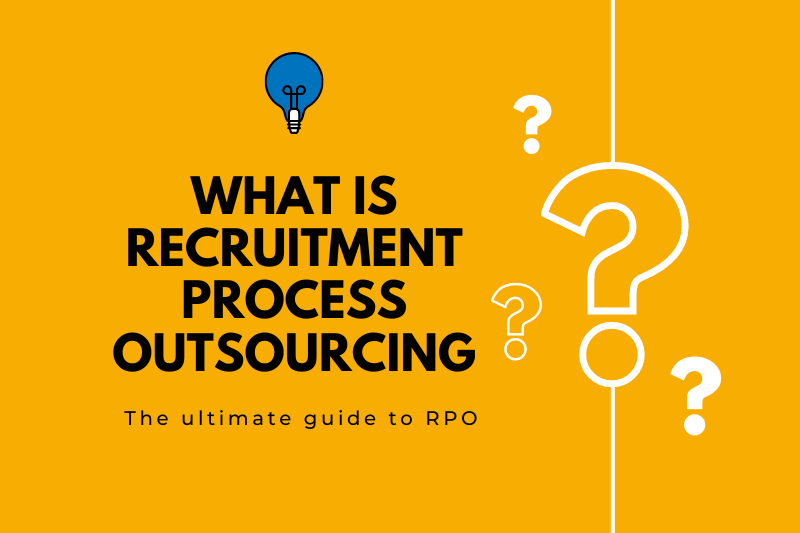
Recruitment Process Outsourcing (RPO) has become an attractive solution for improving employers' talent acquisition strategies. Employers face numerous talent acquisition challenges. From navigating volatile talent market conditions to sourcing specialized skill sets, companies often struggle to meet their hiring needs with limited resources. In this context, by partnering with an RPO provider, businesses can gain access to top-notch candidates and right their hiring strategy.
In this Talent Leader Council feature, the RPOA sits down with Jason Krumwiede, Executive Vice President at Broadleaf Results, to delve into essential insights about today's hiring landscape. Krumwiede shares invaluable perspectives on how RPO can significantly enhance companies' hiring processes, ranging from in-depth labor market analysis to meticulous progress tracking at key intervals. Broadleaf is a certified women-owned business (WBE) that provides talent acquisition and management services, including managed service programs (MSP), recruitment process outsourcing (RPO), employer of record (EOR), direct sourcing, and independent contractor compliance (ICC.)
Below is an edited version of their interview.
RPOA: What are employers' current hiring conditions, market conditions, and challenges?
Krumwiede: It's an interesting time in hiring, with the past eighteen months witnessing significant turbulence due to geopolitical factors, increasing interest rates to combat inflation, and general market uncertainty. These factors have deeply impacted hiring, leading to a cautious approach to hiring plans. Many talent acquisition departments have had to downsize based on their specific needs. Companies have become very wary of rising interest rates and their potential effects, leading to layoffs in various industries, as seen with Google, Amazon, Apple, and Meta, as well as smaller layoffs across other companies. The uncertain market conditions and lack of clarity on demand have dampened hiring.
Despite these challenges, organizations have shown resilience by adapting their talent acquisition strategies. Unemployment remains low, with three industries—government, hospitality, and healthcare—driving hiring growth and supporting solid job growth and unemployment numbers. However, companies struggle to meet their hiring needs with smaller talent acquisition departments and a shortage of specialized skill sets. Although certain skill sets remain in high demand, candidates are cautious and not always willing to take a leap of faith. Employers also have been affected by shrinking recruitment resources.
With that said, I'm optimistic about the second half of 2024. Strategically speaking, talent leaders will see RPO providers as integrated partners, particularly given the cost and time it takes to rebuild internal teams.
"Strategically speaking, talent leaders will see RPO providers as integrated partners, particularly given the cost and time it takes to rebuild internal teams."
Q: What makes RPO an attractive option versus rebuilding internal teams?
Krumwiede: In times of uncertainty, businesses face a tough choice: rebuild or buy solutions. As we hope for a lift in the economy, companies will have new business opportunities to react to. These new opportunities raise a critical question for HR leaders and talent acquisition teams: should they rebuild their internal departments to handle a spike in hiring or align with a strategic partner that can handle this and many more spikes in the future? Most leaders want to avoid rebuilding and incurring fixed costs, so they need a more innovative solution. Creating innovative solutions is where RPO becomes a strategic partner for talent acquisition teams. It's a robust solution set that creates value by scaling up hiring, bringing in better talent, and doing it all at a lower cost. With RPO, businesses can meet their hiring needs more efficiently and effectively while freeing up resources to focus on their core business.
Q: What are the benefits of using RPO?
Krumwiede: As an RPO provider, we aim to provide employers with quality candidates that align with their hiring strategy. Our core focus is on using technology, market insight, and analysis to deliver top-notch candidates promptly. We understand that many employers already have an ATS or platform, which is why we bring ancillary tools to the table, such as sourcing tools, reporting tools, and analytics, to drive value and efficiencies. Our advisory services help companies elevate their hiring strategy by providing insights into the labor market and the supply and demand within their particular market. We also help them to differentiate themselves from their competitors and attract top talent in their industry. In a nutshell, RPO services are all about bringing employers consistent, top-quality candidates and helping them elevate their hiring strategy to achieve success.
Q: What are some best practices for ensuring a successful RPO partnership?
Krumwiede: As companies consider implementing RPO, it's essential to understand that it can be challenging. However, our approach involves evaluating progress at specific intervals, including the first ninety days, year one, and year three.
In the first ninety days, our team helps employers transition from their current state to their future state. We start slowly to understand the organization better and identify any potential issues that may arise. An internal champion is critical during this time, as it can be a bumpy ride. Our role as coaches is to work closely with the business leader to address unrealistic expectations and identify areas where there may be more change management.
In year one, we evaluate progress using data, KPIs, and other metrics to determine actual performance against benchmarks. This is also when we conduct the first annual business review, discussing the entire program, identifying improvement areas, and driving things forward.
By year three, we've been working together for a while, and it's important to reset the partnership, realign it with the business, and ensure that everyone is on the same page. We work closely with new stakeholders during this time to ensure the partnership continues evolving and improving. With this partnership philosophy and methodology, RPO providers and employers can achieve partnership success together.
Q: How do RPOs help build trust with clients?
Krumwiede: Trust is critical in an RPO partnership; the data must show that RPO is better, cheaper, faster, and scalable. We focus on providing a positive experience for all stakeholders, including hiring managers, by using innovative recruiting strategies and providing data on job descriptions, pay ranges, and competitor salaries. We aim to be easy to work with and represent our client's brand as ours. We build trust by providing consultative advice and partnering with our clients to change their hiring practices when necessary. For example, we may encourage employers to focus on communication skills and competencies rather than rigid experience requirements that may limit the talent pool.
It's also important to take a thoughtful approach tailored to the organization's needs to create the best experience and drive value. What matters most is the company's requirements. Our reporting is accessible through a dashboard that is updated in real-time and can be customized based on their cost center, department, and function. As a result, we're able to meet those specific requirements. Employers can see current job openings, candidate pipelines, and past hires and drill down to specific information. We refresh our dashboard every 24 hours, but employers can adjust the frequency based on their needs. We use the dashboard in our weekly meetings to discuss key priorities, bottlenecks, KPIs, and themes and align them with the employer's business strategy. A good dashboard provides visibility into all requisitions, all the time, for everyone from senior leaders to recruiters. Training employers to access and export their data to Excel is a good practice, making it a quasi-self-service tool.
Conclusion
Various factors have affected the current hiring environment, leading to challenges for talent acquisition departments. Despite these challenges, organizations have shown resilience by adapting their talent acquisition strategies. RPO services have become attractive for businesses looking to meet their hiring needs more efficiently and effectively while freeing up resources to focus on their core business. Using technology, market insight, and analysis, RPO providers promptly deliver top-notch candidates to employers aligning with their hiring strategy. By following best practices for ensuring a successful RPO partnership, businesses can elevate their hiring strategy to achieve success.














